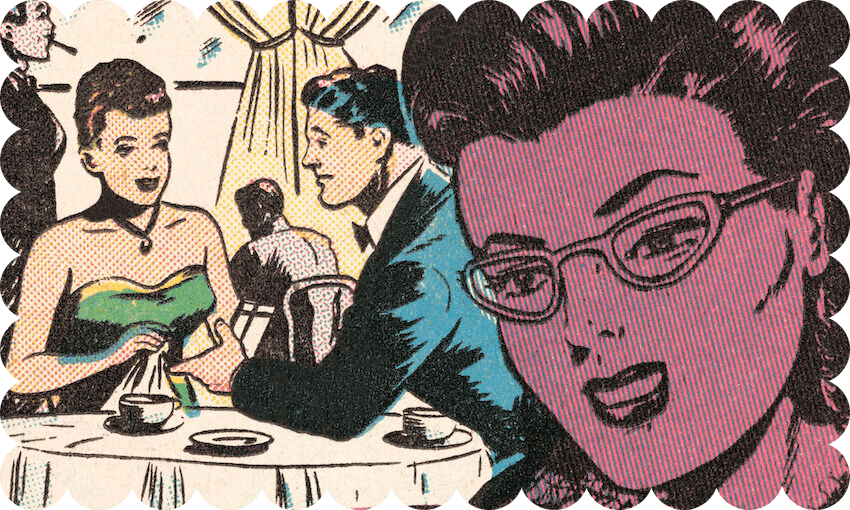Table-claiming can make the cafe floor a fraught space – but it doesn’t need to be, writes Charlotte Muru-Lanning.
This is an excerpt from our weekly food newsletter, The Boil Up.
Picture this: You’re alone in the line to order at a disarmingly cool, just-opened cafe. As the line slowly but surely edges forward past the cabinet you’re eyeing up a shockingly expensive yet alluring iced cake and contemplating whether you go for your usual coffee order, or if the weather is warm enough to justify another extravagance: iced coffee. You make it to the front of the line and decide that you will in fact splurge on a little slice of cake, because you’re worth it – but also come to the conclusion that it’s most definitely too cold today to go for the iced coffee. You make your well-considered order, and peer around your shoulder at the packed cafe. After spotting one empty table – a rare treasure in a sea of populated seats – you say confidently to the worker behind the counter, “to have here thanks!” with a pointed finger in the vague direction of where you’ll be sitting.
But as you swoop around and make a beeline for that empty table (sans a table number because this place is too modern for that kind of superfluity), your plans are shattered. The table you’d spotted is spoken for, dibsed by someone who hasn’t even ordered yet but who has a valuable weapon: a cafe companion who can order at the till while they casually commandeer the table. Meanwhile, you’re left standing in limbo with a slight grimace on your face and nowhere to eat your cake and coffee.
The floor of the cafe is a fraught space – but it doesn’t need to be. This is my controversial plea to the country: please make your order at the counter before claiming a table.
While the kind of manoeuvre I’m protesting against is often a two, or more, person operation, it can be done by just one if they have enough pluck. In the same vein as the beach towel brigade, there are those confident enough to leave their bag unattended as a kind of flag on the moon-type symbol of ownership. Some even leave books or magazines – a recipe for confusion as those desperate for a table wonder whether this is an indication of proprietary rights or if someone has just accidentally left their book behind. I once handed in a set of car keys left on a bench at a cafe, only to be told bluntly by the displeased owners of the keys that they had been using them to hold the table. Silly me!
This finders keepers approach to tables suits those lucky enough to have friends or with the bravery to leave their valuables unguarded. But for those dining alone, who’d rather not test fate with their handbag or car keys, it’s an exhausting experience. In what could be a smooth system, whereby you order at the till before claiming a seat and thereby have assurance that there are available tables, this entirely random way of doing things creates chaos. Not to mention that for those who face other barriers to dining out comfortably for other reasons, it only adds further to the complexities.
If we take this tiny, admittedly insignificant but irritating scenario and overthink it (as I clearly have), it’s hard not to see it as emblematic of a broader societal state of affairs. That is, we are regularly forced to make selfish decisions for our own survival and self-preservation – even if we don’t feel good about it. We’ll lay claim to a seat, even if it means we know it will probably make someone else’s experience a little more annoying, because otherwise we might be the schmuck left without one.
What that tells me is that for this kind of dining altruism to work, it requires buy-in from across the board – everyone who frequents cafes in this country. Am I suggesting that this requires widespread societal change? Maybe. During the early days of the Covid-19 pandemic we collectively stopped the illogical practice of standing as soon as the plane landed. This was because we’d been told by airline staff to exit row by row in the hopes it would prevent the virus spreading, and we got to see first hand how much better that orderly approach to disembarking worked. And yet, despite the beauty of that approach, as soon as the official rule was stopped, we went back to our old irrational ways.
So perhaps cafes themselves need to take the lead. Could cafes create rules for how tables are claimed? Do we need a widespread official campaign? Who would enforce this new system? Is this really that important in the scheme of things? It’s not my job to know the answers – I just really want to stop being in cafe table limbo.





